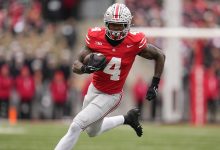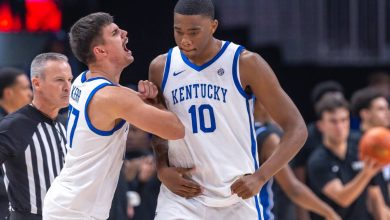Post-Spring SEC Head Coach Rankings: Evaluating the Southeastern Conference’s Leadership

As the 2025 college football season approaches, the Southeastern Conference (SEC) continues to be a powerhouse in collegiate athletics. The league’s success is not only attributed to the talent of its student-athletes but also to the strategic leadership of its head coaches. In this analysis, we delve into the post-spring rankings of SEC head coaches, assessing their performance, impact, and potential heading into the new season.
1. Kirby Smart – Georgia Bulldogs
Kirby Smart remains at the pinnacle of SEC coaching. Under his leadership, the Georgia Bulldogs secured the 2024 SEC Championship, defeating Texas in a thrilling overtime victory. Despite a subsequent loss to Notre Dame in the Sugar Bowl, Smart’s ability to navigate the challenges of a competitive conference and maintain a high-performing team underscores his elite status. His recruiting prowess and defensive strategies continue to set the standard in the SEC.
2. Steve Sarkisian – Texas Longhorns
In his fourth year at Texas, Steve Sarkisian has transformed the Longhorns into national contenders. The team achieved a 13–3 record, clinched the SEC Championship Game appearance, and secured a Peach Bowl victory. Sarkisian’s offensive acumen and strategic game planning have revitalized Texas football, making them a formidable force in the SEC. His success is further highlighted by the program’s record-setting 12 NFL Draft selections in 2025.
3. Kalen DeBoer – Alabama Crimson Tide
Kalen DeBoer, though relatively new to the SEC, has quickly established himself as a top-tier coach. With a remarkable 104–12 career record, including a College Football Playoff appearance in 2023, DeBoer brings a wealth of experience and success to Alabama. His ability to develop talent and execute high-level strategies positions him as a rising star in the conference.
4. Lane Kiffin – Ole Miss Rebels
Lane Kiffin continues to elevate Ole Miss football, leading the Rebels to their first 11-win season in school history. His innovative offensive schemes and adept use of the transfer portal have revitalized the program. Kiffin’s ability to adapt and succeed in the competitive SEC landscape underscores his coaching acumen and potential for future success.
5. Josh Heupel – Tennessee Volunteers
Josh Heupel’s tenure at Tennessee has been marked by offensive innovation and resilience. Despite challenges, Heupel guided the Volunteers to a nine-win season in 2023. With the emergence of promising quarterbacks like Nico Iamaleava, Heupel’s system is poised for continued success. His ability to develop talent and adapt to the evolving landscape of college football positions Tennessee for future competitiveness.
6. Shane Beamer – South Carolina Gamecocks
Shane Beamer’s leadership has significantly impacted South Carolina football. In 2024, he was honored as the SEC Coach of the Year, reflecting his ability to maximize team potential. Beamer’s emphasis on player development and fostering a competitive culture has revitalized the Gamecocks, positioning them as a rising force in the SEC.
7. Eliah Drinkwitz – Missouri Tigers
Eliah Drinkwitz has led Missouri to consistent success, culminating in a 10–3 record and a Music City Bowl victory in 2024. His strategic approach and ability to develop talent have solidified Missouri’s position in the upper echelon of the SEC. Drinkwitz’s leadership continues to drive the program’s growth and competitiveness.
8. Hugh Freeze – Auburn Tigers
Hugh Freeze’s first season at Auburn was a rebuilding year, but his track record suggests significant potential for the program’s future. Known for his offensive expertise, Freeze is expected to enhance Auburn’s competitiveness in the SEC. His ability to recruit and develop talent will be crucial as the Tigers aim to return to prominence.
9. Billy Napier – Florida Gators
Billy Napier’s tenure at Florida has been characterized by a focus on rebuilding and development. While the Gators have faced challenges, Napier’s commitment to establishing a strong foundation is evident. With continued recruiting efforts and player development, Florida aims to regain its competitive edge in the SEC.
10. Mark Stoops – Kentucky Wildcats
Mark Stoops has consistently led Kentucky to bowl eligibility, demonstrating his ability to maximize the program’s potential. His focus on defense and player development has kept the Wildcats competitive in the SEC. Stoops’s leadership continues to be a stabilizing force for Kentucky football.
11. Sam Pittman – Arkansas Razorbacks
Sam Pittman’s leadership has brought stability to Arkansas football. While the Razorbacks have faced challenges, Pittman’s emphasis on building a strong team culture and developing talent provides a foundation for future success. Continued recruiting efforts and player development will be key as Arkansas strives to improve its standing in the SEC.
12. Brent Venables – Oklahoma Sooners
Brent Venables’s first season at Oklahoma was a period of transition as the program adjusted to the SEC’s competitive landscape. While facing challenges, Venables’s defensive expertise and commitment to building a strong team culture provide a foundation for future success. With continued development and adaptation, Oklahoma aims to enhance its competitiveness in the SEC.
13. Billy Napier – Florida Gators
Billy Napier’s tenure at Florida has been characterized by a focus on









